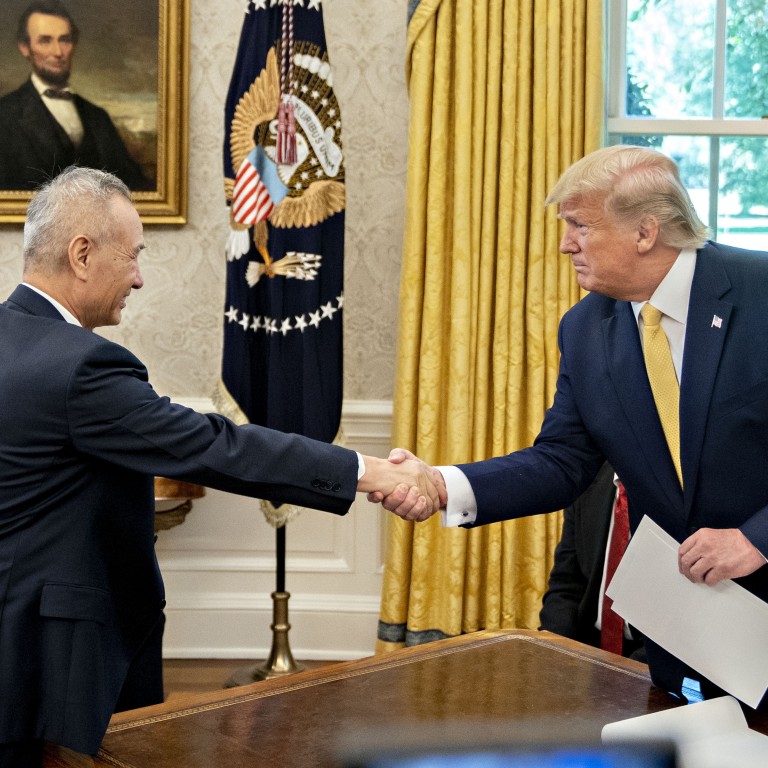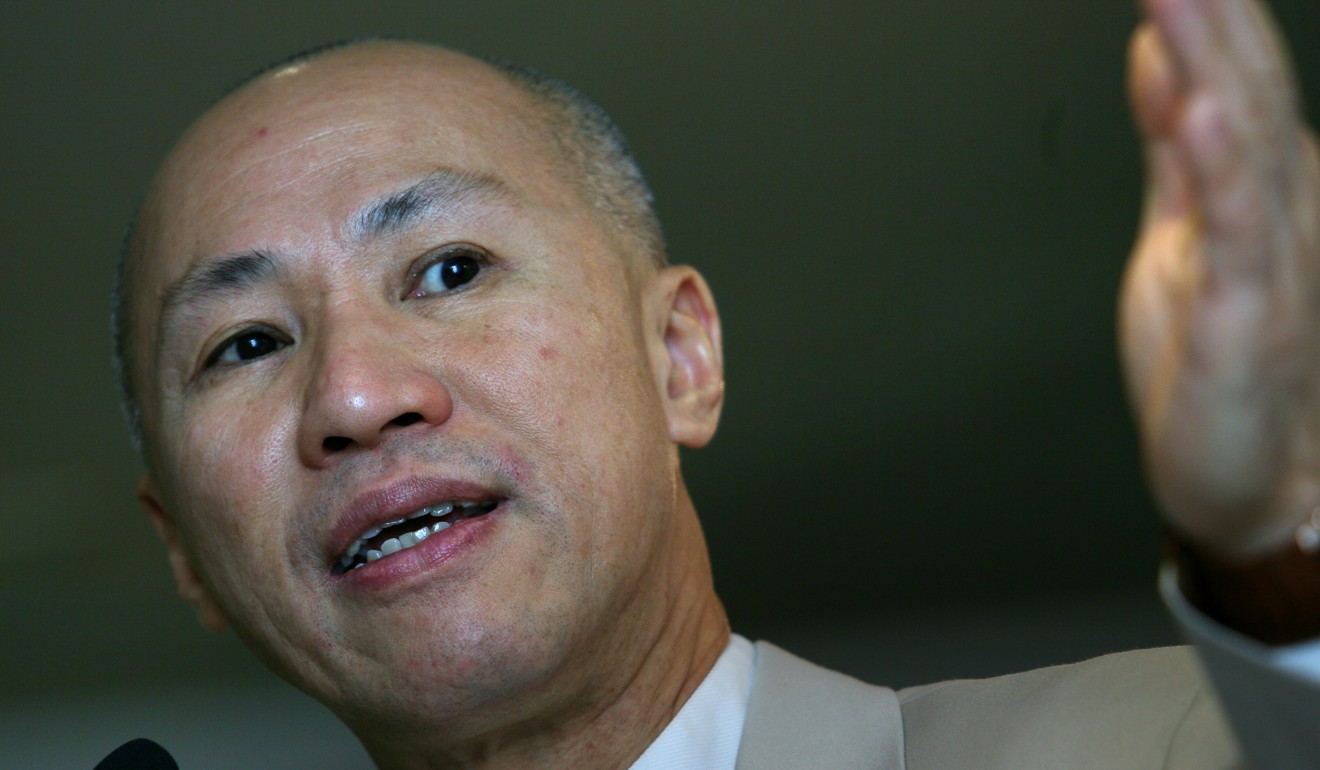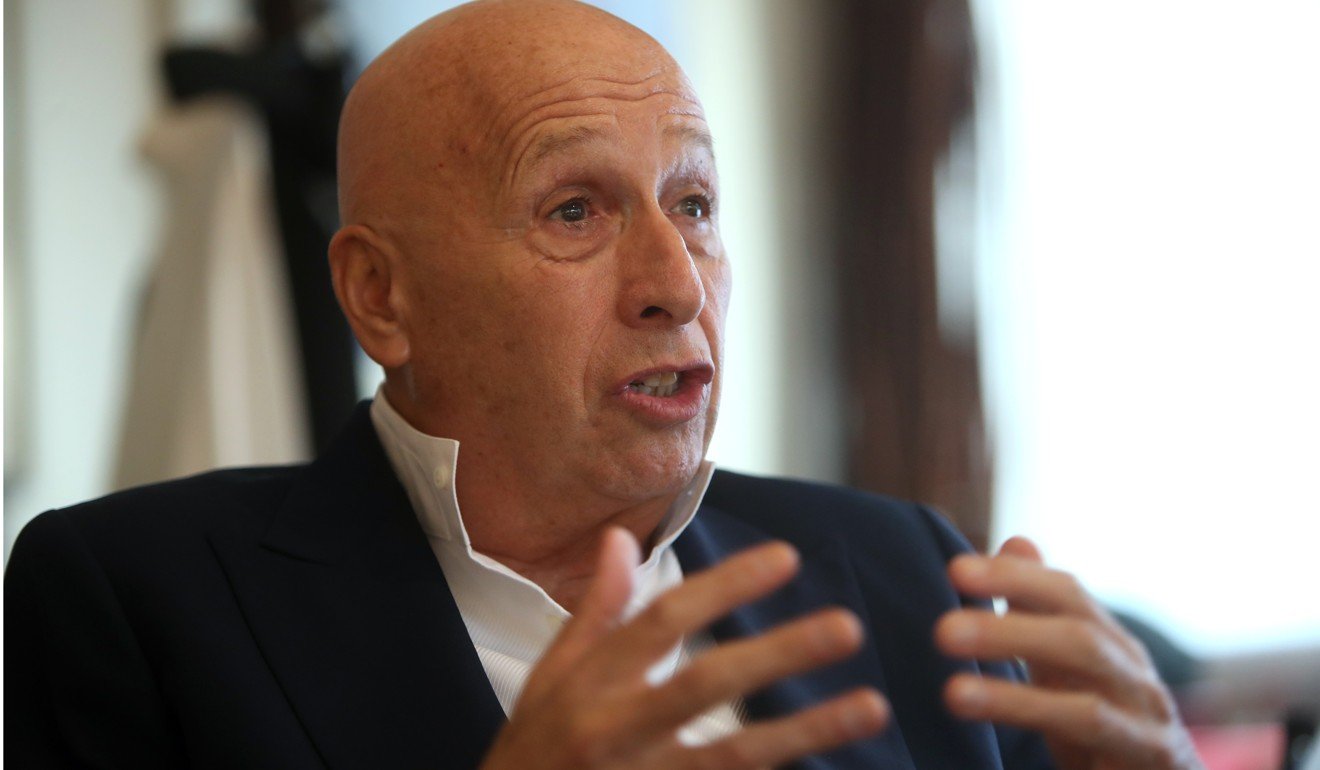
US and China set on ‘decoupling’ amid their clash of civilisations, Singapore Forbes forum told
- Economists and business leaders warn that a ‘phase one deal’ on trade is only a short-term truce and masks a deeper transition for the world economy
- The decoupling process has already taken place in technology and manufacturing, experts say, and leaves businesses with a difficult dilemma
This process would not just stop at trade and investment, warned Ho Kwon Ping, executive chairman of hotel and resort operator Banyan Tree Holdings, but would extend to areas such as intellectual property.
“The Americans seem determined to decouple with China. China has seen it happening, and has realised that it can decouple because its economy is large enough,” Ho said during a panel discussion at the annual Forbes Global CEO Conference at the Shangri-La Hotel.

Yuwa Hedrick-Wong, chief economics commentator for Forbes Asia, felt this deal was a “truce” but “merely a short pause in this long and arduous process”.
He said: “The US-China trade war, for me, is simply a manifestation of a much deeper transition in the global economy, and I believe China is preparing its economy to eventually decouple from the US over time.”
US passing Hong Kong democracy act will ‘punish the wrong people’: ex-US envoy
Chinese state media on Tuesday began describing the two days of just-concluded talks as having made progress. Global markets rallied somewhat at the news after 18 months of a bitter tariff dispute between the two nations.
Ho meanwhile said decoupling had already taken place in technology and manufacturing and had left businesses with a real dilemma.

“It will make the whole world economy a lot more economically inefficient, and will pose challenges for us … because both the American and Chinese economies are pretty important to businesspeople,” he said.
Ho spoke of how a “clash of civilisations” seemed to be taking place between the West and China, with the two political parties in the US united in their negative stance towards Beijing.
The clash was evident in the differing approaches to business in the two countries, he said.
The biggest danger to the Communist Party? Itself
Asked whether he felt China would continue to produce more business leaders like Jack Ma – the former executive chairman of tech conglomerate Alibaba Group who stepped down last month – Ho was critical of the focus in the West on start-ups and said it was a “very American view” to romanticise tech entrepreneurs. Alibaba owns the South China Morning Post.
“If you look at the reality of the American economy today, it is not only driven by your start-ups ... Much of the business is done by your boring Fortune 100 companies,” he said.
Ho added that US firms usually found the idea of the state investing in a private enterprise “totally unacceptable”, but this was not the case in Asia. He cited Singapore, where many of the large players are government-linked companies.
“Don’t take your narrow view of the world and impose it on the rest of the world, and say that if we don’t play your game, your way, we somehow are to be belittled,” Ho said.

“Foreign media sides with these kids who are looking for universal suffrage and saying they want ‘one man, one vote’ ... They are now appealing to the US and Britain, saying that China is clamping down on freedoms,” Zeman said. “It’s not so. I’ve lived there for 48 years, I’ve not seen any clampdown from China on any freedoms.”
The protests have persisted into their 19th consecutive week, with demonstrators blocking roads and trashing government buildings and mainland China-linked businesses.
On Sunday in Kwun Tong, a police officer was slashed in the neck with a box cutter.
China’s National Day show of military muscle risks backfiring
Zeman said the police force were not trained to deal with such unrest and had suddenly been depicted as a brutal force.
“[Videos] don’t show the beginning when police are being provoked by the protesters,” he said.
He suggested the city’s problems were partly due to an education system in which youngsters “never learn about Chinese history”.
“There is no identity. They don’t know if they are Chinese, British or Hongkongers. They are all confused,” Zeman said.
But he added that the violence and vandalism was being caused by a small group of radicals.
“Potentially we might have to bring in the People’s Armed Police, which China doesn’t want ... but we have to bring law and order back to Hong Kong, as the police are not able to handle this day in, day out.”
After normality had returned, the Hong Kong government would have to think about the five demands of the protesters, Zeman said, which include releasing those arrested and establishing an independent commission to look into police conduct.
But the Germany-born, Canada-raised businessman believed the “one country, two systems” principle by which Beijing governs Hong Kong would remain because China was invested in the concept.
“China has something called face and that’s very important. I think Hong Kong will change ... Five years from now, where will this wind up? ... Eventually, universal suffrage has to come back.
“We also can’t have this populism whereby the rich gets richer and the poor gets poorer,” he said. “We’ve got to have a balance between the two.”

